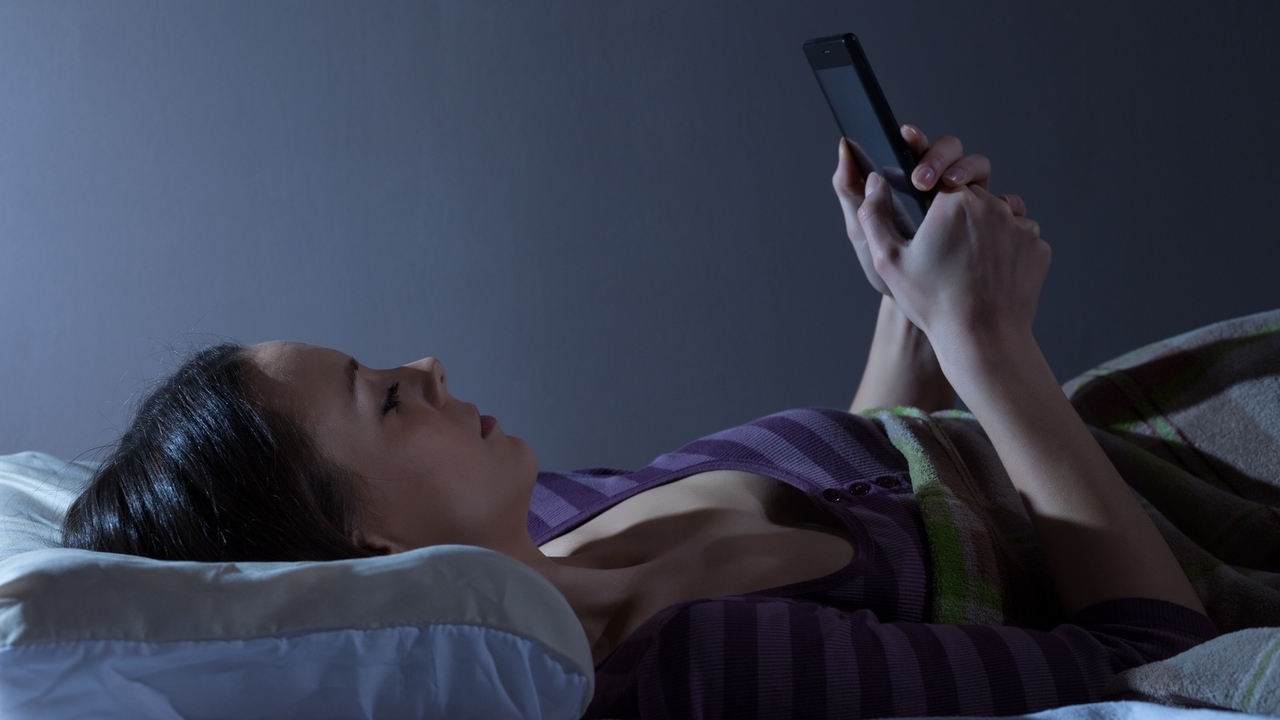 iStockphoto/Thinkstock
iStockphoto/Thinkstock
It seems as though we are caught up in the tangle of urban living only to harm our bodies. As the demands of our careers dictate more travel, longer work hours, more frequent work with different time zones aided by technology, we are unconsciously slicing our rest hours as we take a long commute late in the evenings.
Some of the city dwellers are getting just six hours or less of sleep every day. This is in turn spelling trouble for our mental and physical health.
Research conducted by the Minnesota wing of the Mayo Clinic is now telling us that if we do not get enough sleep, we end up consuming more calories than we need, just to be able to feel up to functioning at normal levels. This is a cue to obesity.
This study was presented at the American Heart Association's Epidemiology and Prevention/Nutrition, Physical Activity and Metabolism 2012 Scientific Sessions. (1)
According to Virend Somers, M.D., Ph.D., study author and professor of medicine and cardiovascular disease at the Mayo Clinic, Rochester, Minnesota, “We tested whether lack of sleep altered the levels of the hormones leptin and ghrelin, increased the amount of food people ate, and affected energy burned through activity.” (2)
Leptin is a protein hormone. It is chiefly produced by the fat cells of our body. Leptin is known to interact with parts of our brain which regulate our appetite and so controls our eating behavior and signals that we have had enough to eat. (3).
Leptin also regulates energy expenditure and plays a key role in metabolism of foods we eat. In the absence of leptin or when leptin levels are very low, we could have an uncontrolled need for eating, thus pegging our risk for obesity.
Ghrelin is an amino acid peptide hormone. In generic terms, ghrelin can be described as a counterpart of leptin.
Ghrelin is primarily produced in the stomach as well as in the small intestine and in the hypothalamus. Its chief function is to stimulate hunger. Ghrelin levels increase before meals and subside after we have eaten. (4)
In the study conducted by Mayo Clinic, 17 healthy adults (men and women) were observed for eight nights. Half the participants got their normal hours of sleep and the remaining slept only two-thirds of their normal sleeping hours in a day.
They were allowed to eat the type and quantity of foods as they wished and were to carry on their daily activities as they normally would.
It was found that the group which was sleep-deprived (sleeping only two-thirds of the hours they usually sleep) were consuming on average 549 calories more than the group that slept their usual hours and duration.
However, the amount of energy this sleep-deprived group spent in their activities was no different from those who got their full hours of sleep. In other words, the deprived group did not burn additional calories to carry on with their tasks in the day.
Blood tests of both the groups showed that for the sleep-deprived group, overeating probably caused a higher leptin reading and decreased ghrelin levels.
As per Andrew D. Calvin, M.D., M.P.H., co-investigator, cardiology fellow and assistant professor of medicine at the Mayo Clinic, “Sleep deprivation is a growing problem, with 28 percent of adults now reporting that they get six or fewer hours of sleep per night.” (5)
However, the researchers added that a study of a larger population taking more factors into consideration needed to be conducted, though lack of sleep was an important part of the obesity equation and one which was a preventable cause of weight gain.
SOURCES:
1. Lack of Sleep May Increase Calorie Consumption; Science Daily News; Web April 2012; http://www.sciencedaily.com/releases/2012/03/120314170456.htm
2. Lack of sleep may increase calorie consumption; American Heart Association - Newsroom Home; Web April 2012; http://newsroom.heart.org/pr/aha/lack-of-sleep-may-increase-calorie-230068.aspx
3. Definition of Leptin; MedicineNet.com; Web April 2012; http://www.medterms.com/script/main/art.asp?articlekey=10875
4. Ghrelin; Encyclopaedia Britannica; Web April 2012; http://www.britannica.com/EBchecked/topic/1373326/ghrelin
5. Lack of Sleep May Increase Calorie Consumption; National Sleep Foundation; Web April 2012; http://www.sleepfoundation.org/alert/lack-sleep-may-increase-calorie-consumption
Abstract of the technical report may be accessed at:
1. Insufficient Sleep Increases Caloric Intake But Not Energy Expenditure; Mayo Clinic, EPI-NPAM 2012; Web April 2012; http://newsblog.mayoclinic.org/files/2012/03/Abstract-Sleep-Study.pdf
INFORMATION IN THIS ARTICLE IS NOT MEDICAL ADVICE. ALL INFORMATION GIVEN IS TO BE CHECKED WITH YOUR DOCTOR BEFORE IMPLEMENTING OR TAKING THEM AS STANDARD OR VERIFIED.
Mamta Singh is a published author of the books Migraines for the Informed Woman – Tips From A Sufferer: ISBN: 978-81-291-1517-1 (Publisher: Rupa & Co. URL: http://www.amazon.com/Migraines-Informed-Woman-Tips-Sufferer/dp/8129115174/ref=sr_1_2?ie=UTF8&s=books&qid=1298990756&sr=1-2), Mentor Your Mind – Tested Mantras For The Busy Woman: ISBN: 978-81-207-5973-2 (Publisher: Sterling Publishers; URL: http://www.amazon.com/Mentor-Your-Mind-Tested-Mantras/dp/8120759737/ref=sr_1_1?ie=UTF8&qid=1316063179&sr=8-1) and the upcoming Women’s Complete Fitness Guide (Publisher: Hay House India).
She is also a seasoned business, creative and academic writer. She is a certified fitness instructor, personal trainer & sports nutritionist through IFA, Florida USA. Mamta is an NCFE-certified Holistic Health Therapist SAC Dip U.K. She is the lead writer and holds Expert Author status in many well-received health, fitness and nutrition sites.
She runs her own popular blogs on migraines in women and holistic health. Mamta holds a double Master's Degree in Commerce and Business. She is a registered practitioner with the UN recognised Art of Living Foundation. Please visit www.mamtasingh.com
Reviewed May 21, 2012
by Michele Blacksberg RN
Edited by Jody Smith





Add a Comment5 Comments
I think I have always noticed that when I am tired I eat more. I used to think it was two separate issues both related to stress. That is, I thought I slept less due to stress and I ate more due to stress. While I think that is still true for me to some extent, I was very interested to read that the two things are actually related to each other. It makes more determined to stick with yoga and guided meditation to help me get a better night’s sleep.
May 31, 2012 - 11:38amThis Comment
Dear Anonymous,
Thank you for taking the time to read this Empowher article.
You are absolutely right on this not being a new discovery but with more people leading stressful lives than ever before for a variety of reasons (economy - careers, personal) and the shocking numbers in forecasts coming in for obesity from CDC May 7, 2012 (http://www.cdc.gov/media/releases/2012/t0507_weight_nation.html) , we were good to remind ourselves, just as you said. Keep reading with Empowher!
Best,
May 22, 2012 - 11:34pmThis Comment
Although this is no news (a Google Scholar search with the keywords "sleep deprivation" "caloric intake" will show up plenty of related research dating back at least to 2004), thanks for reminding us of this important aspect of a regular and balanced lifestyle.
May 22, 2012 - 11:04pmOn a personal note, I have also noticed that sleep deprivation not only stimulates appetite but also cravings for junk food... potentially again related to leptin levels and the perceived body need for more energy in the form of fats and sugars
This Comment
Thank you so much Dr. Perrone for taking the time to read this Empowher article.
I have noticed this for myself that if and when I am sleep deprived I tend to reach out for sweet foods and that adds to the damage.
Best,
May 21, 2012 - 9:54pmThis Comment
This all makes alot of sense. A lot of binge type eating happens when we are overtired. Sleep is so important and so many of us(myself included at times) do not get enough of good quality sleep time. Our entire balance is thrown off without proper sleep.
Marielaina Perrone DDS
October 16, 2012 - 8:53amHenderson Dentist
This Comment